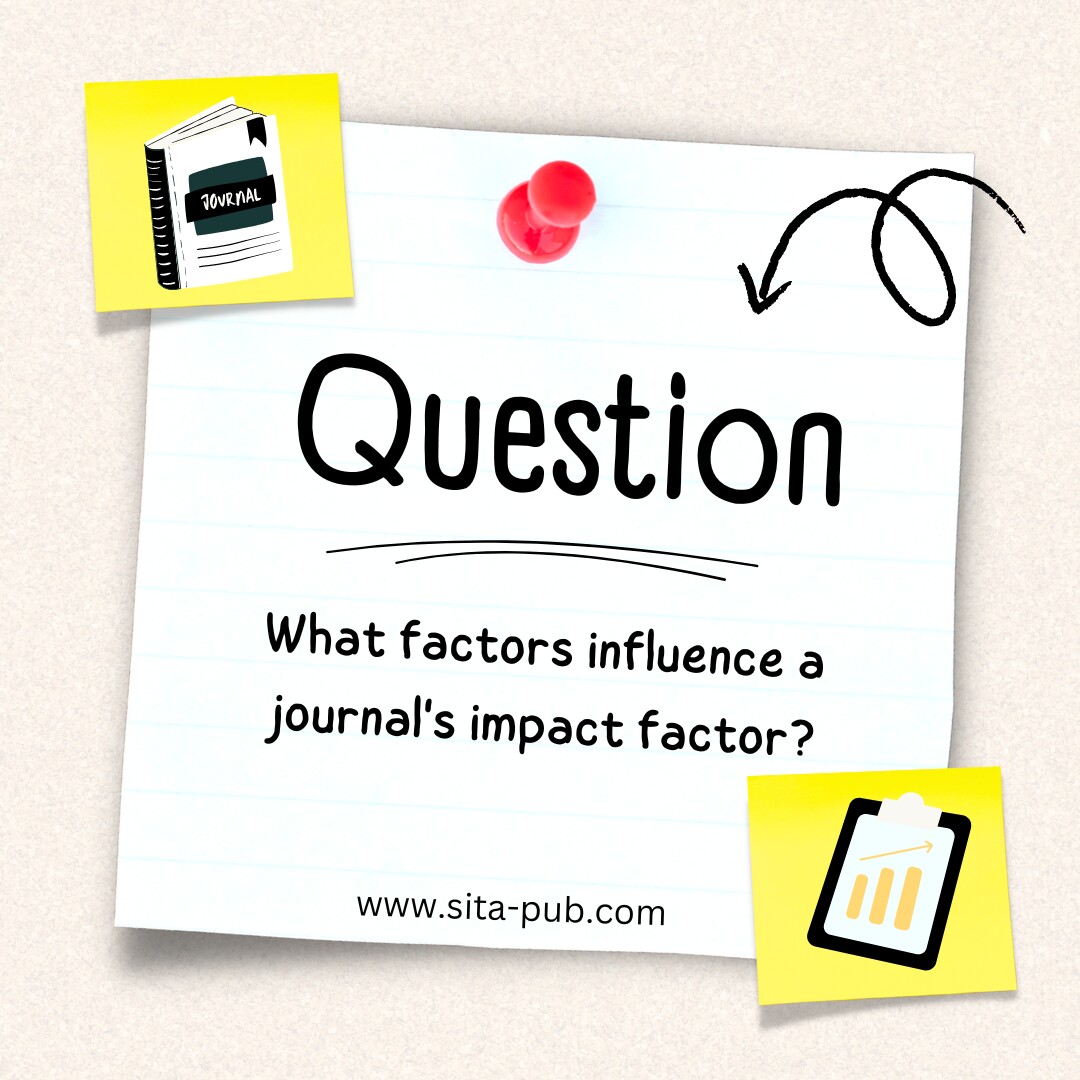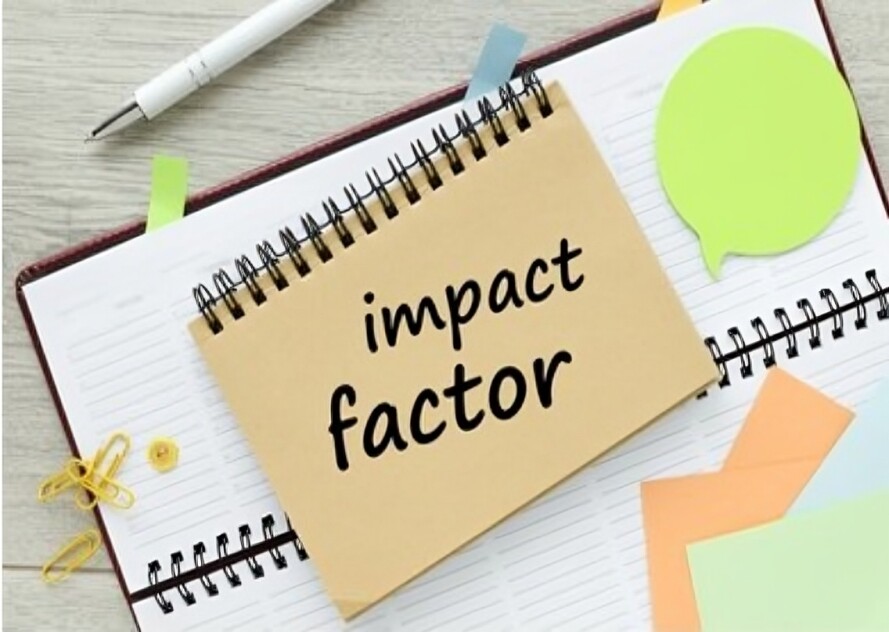What factors influence a journal's impact factor?


In the world of scientific research, journals play a big role. They're like magazines for scientists, where they share their new discoveries and ideas. But some journals are considered more important than others, influencing decisions about where to publish research, where to seek funding, and even the perceived value of a scholar's work. That's where the "impact factor" (IF) comes in – a widely used metric in academic publishing to gauge a journal's influence and prestige. It's a way to measure how influential a journal is, kind of like a popularity rating.
The impact factor tells us how often other scientists cite articles published in a particular journal. Think of it like this: If a scientist writes a paper and mentions another scientist's work, that's a citation. The more citations a journal's articles get, the higher its impact factor.

To calculate the impact factor, we count how many times articles from that journal are mentioned in other research papers over a two-year period. Then, we divide that number by the total number of articles published in that journal during those two years.
Several things can make a journal more influential and give it a higher impact factor:
Great Research: Journals that publish high-quality, important research are more likely to be cited by other scientists. This is because their work is considered valuable and worth mentioning. Imagine a scientist discovering a new cure for a disease! That research would be groundbreaking and likely cited by many other scientists, boosting the journal's impact factor.
Specific Fields: Some fields of science, like medicine or computer science, are always changing. Journals in these areas often have higher impact factors because scientists are constantly referencing new discoveries. For example, a journal focused on artificial intelligence would likely have a higher impact factor than a journal focused on ancient history, simply because AI is a rapidly evolving field with constant new breakthroughs.
Narrow Focus: Journals that focus on a very specific topic can attract a lot of attention from researchers working in that area. This is because they're the go-to source for information on that particular subject. A journal focusing on the genetics of a specific type of butterfly would likely have a higher impact factor than a general entomology journal, as it caters to a smaller, more specialized audience.
Easy to Find: Journals that are easy to access and well-known are more likely to be cited. Open access journals, where anyone can read the articles for free, often have higher impact factors. Imagine a researcher trying to find information on a specific topic. If they can easily access a journal online, they're more likely to use it and cite its articles.
Trusted Editors: Journals with a strong editorial team, known for their expertise and fairness, attract high-quality research. This builds trust and leads to more citations. A journal with a reputation for rigorous peer review and a distinguished editorial board is more likely to attract top-notch research, increasing its impact factor.
Time Matters: The impact factor changes over time. A journal's impact factor can go up or down depending on the research published in recent years. A journal might experience a surge in its IF if it publishes a highly influential article that receives numerous citations, but this impact might diminish over time as newer research emerges.

It's important to remember that the impact factor is just one way to judge a journal. It doesn't tell you everything about the quality of the research. When choosing a journal, it's also important to consider:
The journal's focus: Is it relevant to your research? If your research is on a specific topic, you want to choose a journal that specializes in that area.
The editorial process: Is the journal known for being fair and rigorous? A journal with a strict peer review process and a reputation for ethical publishing practices is more likely to produce high-quality research.
The journal's reputation: Is it respected in your field? A journal with a strong reputation in your field is more likely to be recognized and cited by other researchers.
By considering all of these factors, you can make a well-informed decision about where to publish your research. And remember, while the impact factor is a significant metric in academic publishing, it's only one piece of the puzzle when evaluating a journal's influence and prestige.

Ready to publish your research? We can help you find the right journal!
Contact us and we'll send you a list of journals that match your desired indexing and impact factor.
If you have any questions, inquiries, or would like to learn more about our services, please don't hesitate to reach out to us. Our dedicated team is ready to assist you.